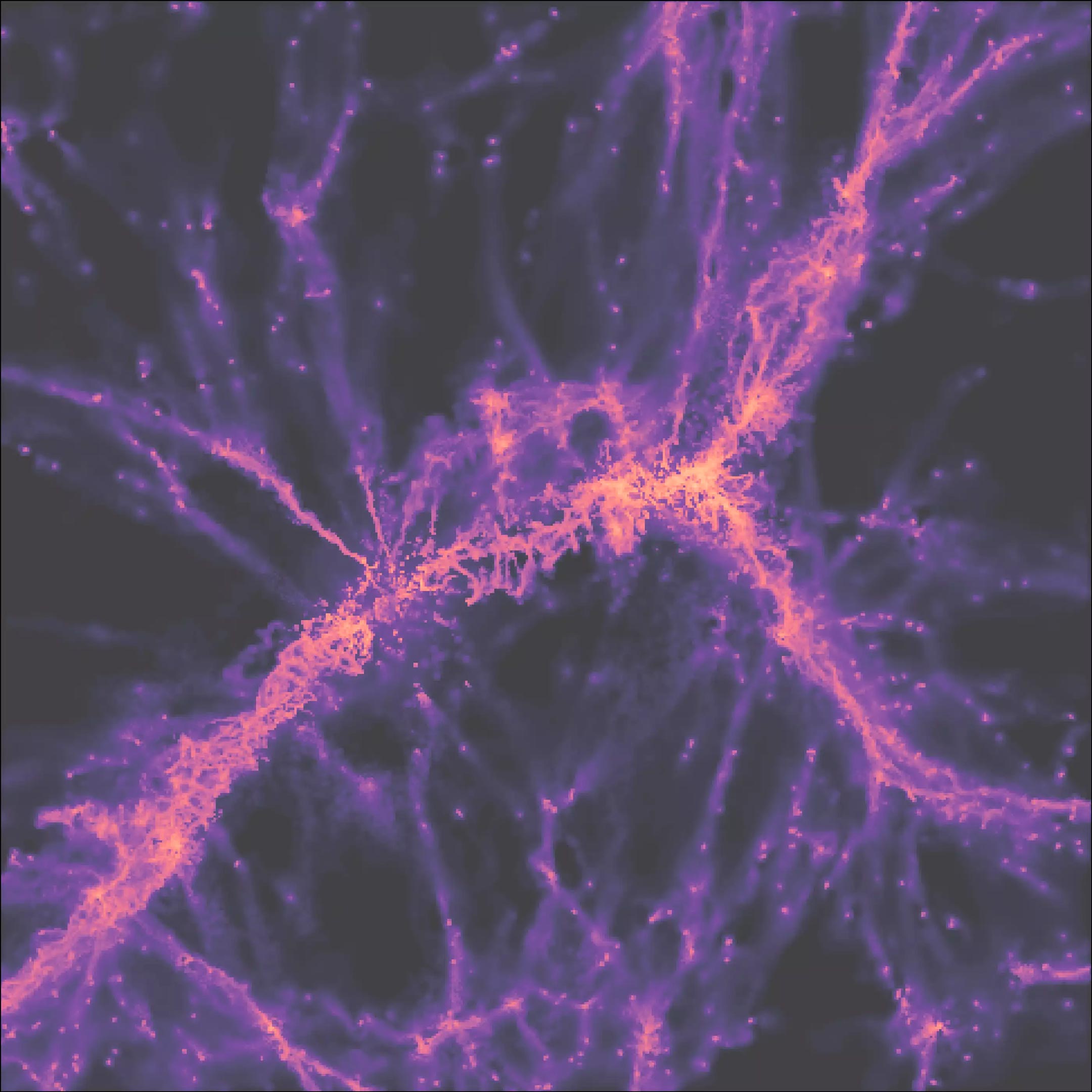

Title: Did Dark Matter Precede the Big Bang? A Novel Theory Questions the Beginnings of the Universe
For many years, the Big Bang has been generally regarded as the commencement of everything—space, time, matter, and energy. However, recent research is calling this fundamental cosmological tenet into question. A new study by physicists at the University of Texas at Austin presents a groundbreaking notion: dark matter, the enigmatic substance that constitutes the majority of the universe’s mass, might have originated before the Big Bang itself.
This innovative theory not only challenges the chronology of the universe’s inception but also paves the way for a deeper comprehension of the cosmos and what may have existed prior to the beginning of time as we understand it.
The Big Bang and Cosmic Inflation
The Big Bang theory asserts that the universe initiated as an infinitely small, hot, and dense entity approximately 13.8 billion years ago, followed by a rapid expansion. However, this expansion was not the initial event in cosmic history. Researchers speculate that a brief yet intense phase of exponential expansion—termed cosmic inflation—occurred just before the Big Bang.
The inflation model assists in explaining numerous perplexing characteristics of the universe, such as its large-scale uniformity and flatness. However, it also prompts new inquiries: What transpired during inflation? Could anything have endured or even originated in this chaotic period?
Introducing the WIFI Model
The recent study, appearing in Physical Review Letters in 2024, unveils a concept known as Warm Inflation via Ultraviolet Freeze-In (WIFI). This model proposes that the extreme temperatures and energies during inflation may have incited tiny interactions capable of producing dark matter particles.
Historically, physicists assumed that anything formed during inflation would be obliterated by the overwhelming expansion. Yet, the WIFI model contests that belief. According to this theory, dark matter not only emerged during inflation—it managed to survive and played a vital role in molding the early universe.
If validated, this would imply that dark matter predates the Big Bang, categorizing it as one of the most ancient components of the cosmos.
What Is Dark Matter?
Dark matter stands as one of the most elusive and fascinating components in contemporary astrophysics. It neither emits, absorbs, nor reflects light, rendering it invisible to current detection methods. Still, its existence is deduced from its gravitational influences on visible matter, such as stars and galaxies. Absent dark matter, galaxies would fail to maintain their structure, resulting in a markedly different observable universe.
Despite extensive research over the years, scientists have yet to directly identify dark matter particles. Its composition and origin remain among the greatest enigmas in physics.
Consequences of Pre-Big Bang Dark Matter
If dark matter genuinely formed prior to the Big Bang, it could transform our understanding of the universe’s beginnings. It indicates that the Big Bang wasn’t the definitive start but a crucial transition in a much broader cosmic narrative.
This hypothesis also prompts profound inquiries:
– What existed prior to the Big Bang?
– Could other forms of matter or energy have arisen during inflation?
– Is there the possibility of a multiverse or alternate universes with distinct physical laws?
The theory also carries ramifications for the cosmic microwave background (CMB)—the faint remnant glow of the Big Bang. If dark matter emerged during inflation, it may have left subtle signatures in the CMB that future observations could uncover.
Skepticism and the Path Forward
As with any revolutionary theory, the WIFI model necessitates further scrutiny. It needs to be tested against observational data and assessed alongside other models of dark matter generation. Some researchers express skepticism, pointing out that inflation remains a theoretical idea with limited direct evidence.
In addition, alternative theories propose different explanations for the universe’s origins. For instance, some scientists have suggested the universe began with not one, but two Big Bangs, or that it arose from a prior cosmic cycle.
Conclusion: A New Horizon in Cosmology
The proposition that dark matter predates the Big Bang is both intriguing and stimulating. It challenges long-cherished assumptions and encourages scientists to investigate what may exist beyond the conventional confines of space and time.
As technological advancements continue and our understanding of the universe improves, it is possible we will eventually unveil the actual origins of dark matter—and perhaps even catch a glimpse of what preceded the beginning.
Until then, the cosmos persists in captivating us, serving as a reminder that the universe is far more mysterious and intricate than we ever envisioned.